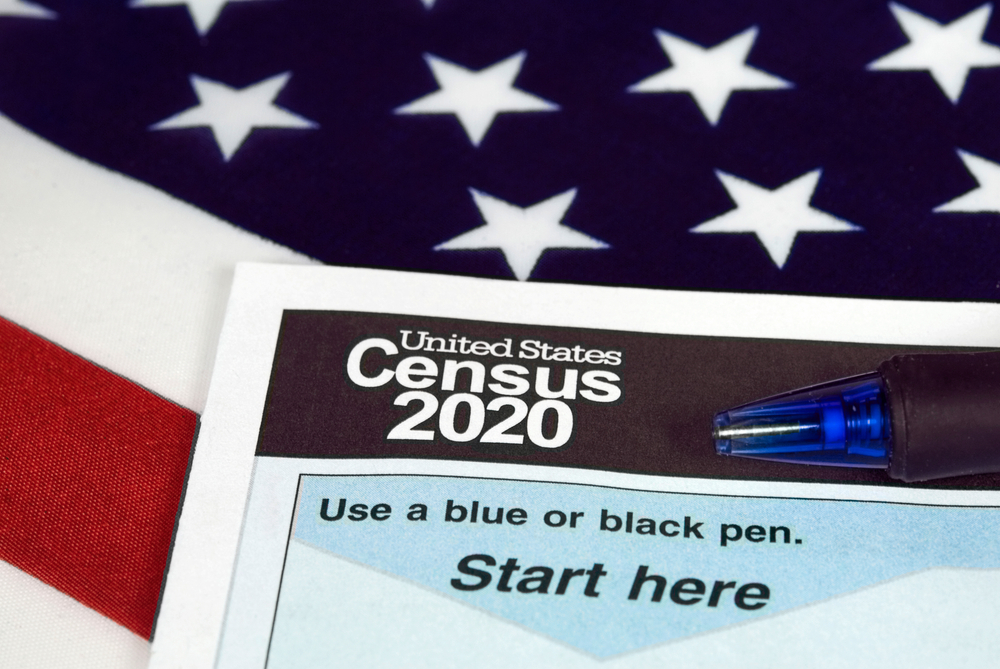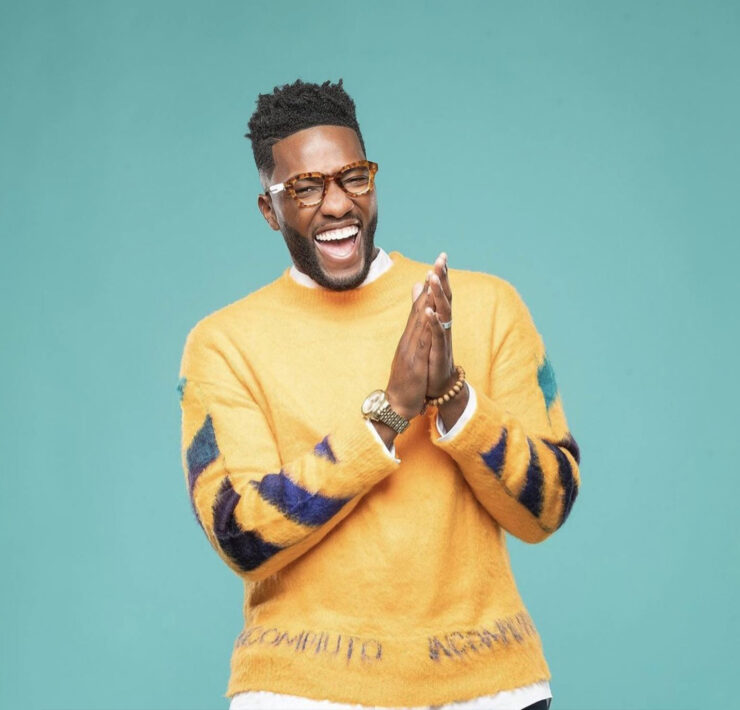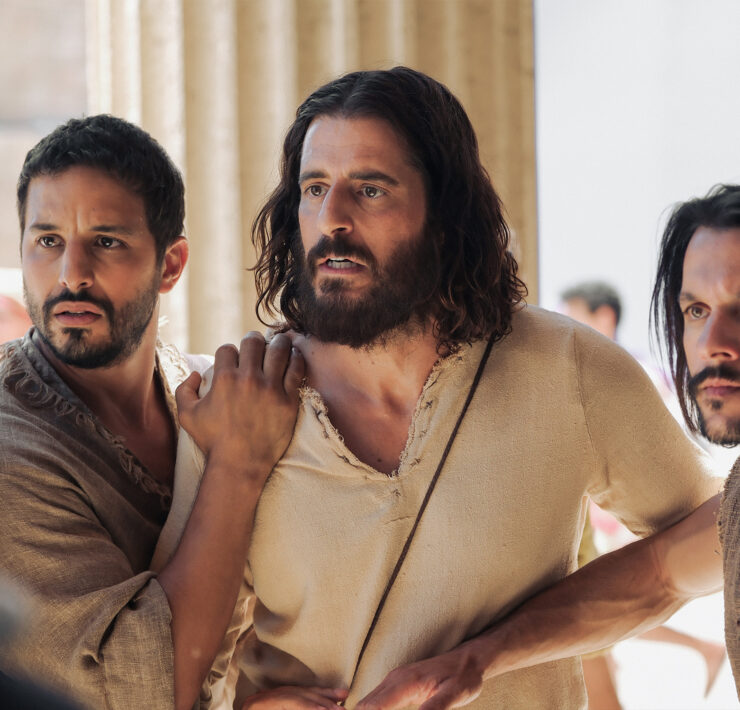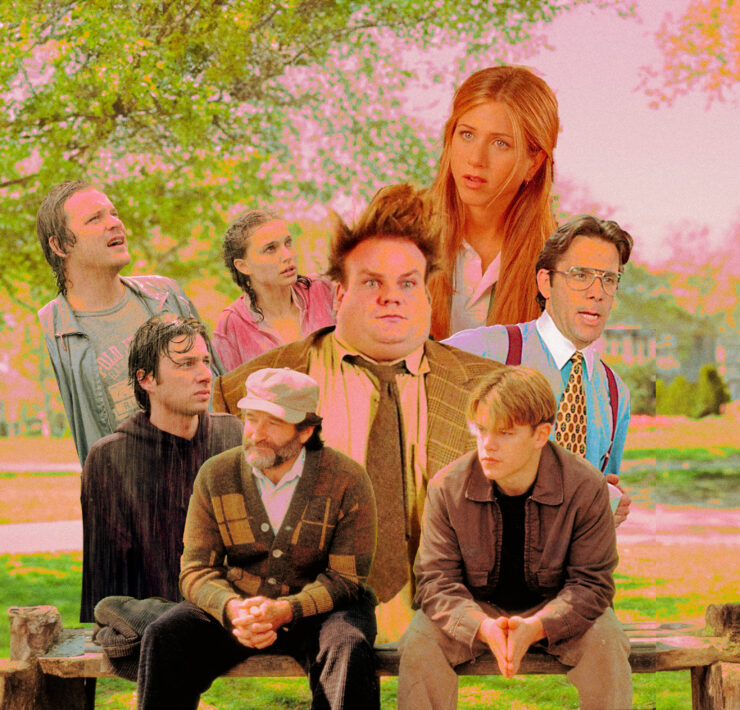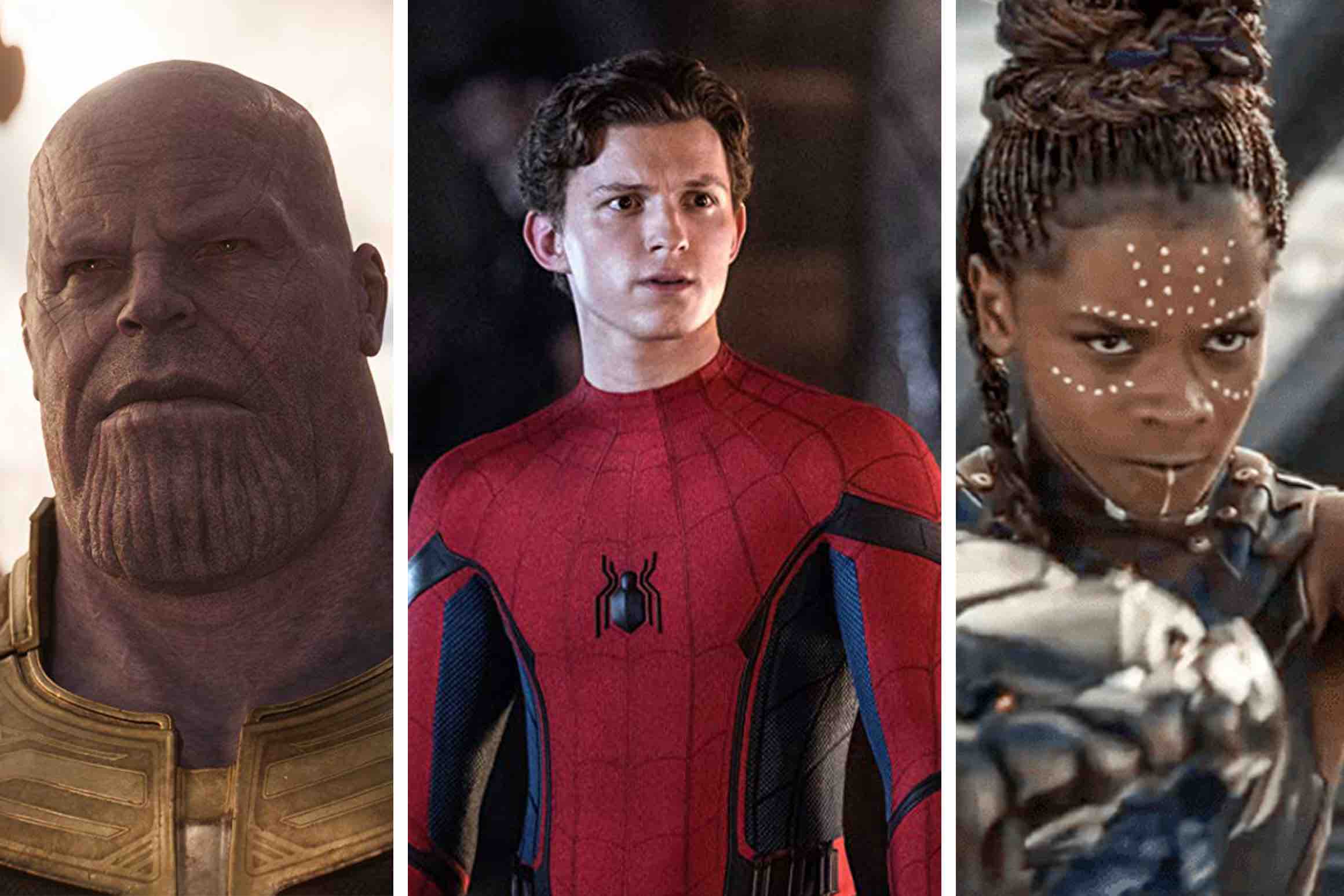
With Black Panther waiting in the wings and Infinity War rounding the corner, it’s time to stop and take stock of one of the most monumental developments in Hollywood over the last decade: the Marvel Cinematic Universe. Beyond just making a lot of people very, very rich, the movies have largely raised the bar for what a summer movie can be. While they’re admittedly not for everyone, the MCU is rarely bad, mostly good and sometimes wonderful.
This is a franchise unafraid of tackling real themes of redemption, humility and loneliness. Filmmaking skill and solid actors can make these movies fun, but the truth and virtues buried in them is what makes these movies important—much like the original Star Wars movies were for the previous generation.
Some have handled all this better than others, so the only thing left to do is rank them.
23. Iron Man 2
After the surprise success of the first entry, Jon Favreau and co. stumbled with this painfully paint-by-numbers sequel. By this point, Marvel’s vision of a grand “cinematic universe” was starting to pick up some real traction, but the world-building efforts here overwhelmed the movie’s more interesting ideas. Still, this is the movie that inducted both Scarlett Johansson and Don Cheadle into the franchise, and for that we must be grateful.
22. Thor: The Dark World
The MCU has rather famously struggled to create compelling villains, and rarely has that issue hamstrung a narrative more than in the second Thor movie. After creating one of Marvel’s few truly great villains in the first movie, the sequel squanders its shot with a dark elf named Malekith—a chilling presence in the comics, brought to vague and unimpressive life here by Christopher Eccleston.
21. The Incredible Hulk
There’s a bit of controversy over whether or not Edward Norton’s movie is officially considered part of the MCU canon since the role was hastily recast following Norton’s very vocal displeasure with the movie. But since William Hurt’s General “Thunderbolt” Ross showed up in Civil War, this movie must be considered fair game, not that it matters much either way. It’s perfectly mediocre.
20. Thor
There’s a lot to like about this movie, which introduced the world to Chris Hemsworth’s knack for undercutting his A-list actor face with goofball slapstick—like a protein shake with whipped cream and sprinkles. We also meet Tom Hiddleston’s lip-smackingly sly Loki, one of the franchise’s finest characters. Natalie Portman and Hemsworth have an unexpected amount of chemistry and the tease of Jeremy Renner’s Hawkeye still works like gangbusters, even if the plot itself is a little unimaginative. But it’s never better than when it’s questioning its hero’s hubris, and works in a theme about the power of humility that would make Brene Brown stand up and cheer.
19. Ant-Man
Ant-Man suffered a lot of drama in the production stage, with original director Edgar Wright getting swapped out for Peyton Reed early on. It’s a testament to Marvel’s editing room that the finished product holds together as well as it does, largely on the strength of Paul Rudd, perhaps the hardest person to dislike in the known universe. It also gets back to a subject these movies have always handled excellently: flawed people learning to accept that they are worthy of redemption.
18. Doctor Strange
This movie came out of the gate with controversy for whitewashing the role of the “Ancient One”—a character who had been Tibetan in the comics, played in the movie by Tilda Swinton. Director Scott Derrickson explained the decision here and it’s clear the studio felt boxed in. However you feel about that decision, the movie nevertheless delivered some scrumptious visuals and winning performances from both Swinton and Benedict Cumberbatch, successfully widening the scope of Marvel’s Universe while injecting some real pathos into a major character’s very touching death scene, clearly influenced by Derrickson’s faith.
It’s also one of the few Marvel movies to save its best tricks for last, with a third act featuring a bad guy who’s defeated by brains instead of just getting beat into submission. Alas, the movie completely squanders Rachel McAdams, a sin for which there can be no forgiveness.
17. Avengers: Age of Ultron
After the gee-wow success of the first Avengers, there was very little room for these types of rock ‘em, sock ‘em melees to improve. Age of Ultron suffers from very public tension between director Joss Whedon and the Disney suits. He agreed to put in the baffling “Thor Cave” scene (which makes no more sense now than it did then) and they let him have an extended second act with the Avengers hanging out on Hawkeye’s farm. Whedon’s decision has aged better, as these movies are at their best when they emphasize the “human” part of “superhuman,” and studio interference got in the way of what otherwise remains a surprisingly idiosyncratic effort.
16. Ant-Man & The Wasp
Coming as it did on the heels of Black Panther and Avengers: Infinity War, the follow-up to the first Ant-Man movie felt a little small, which served it well thematically. Not every Avengers movie needs grand, reality-altering operatics, and Ant-Man & The Wasp leaned into the leanness of its stakes by structuring the film around a simple sci-fi rescue mission with a lot of heart and, of course, some of the finest comedy beats in the franchise.
15. Captain Marvel
It’s difficult to separate the moment Captain Marvel represents from the movie itself. As Marvel’s first major woman superhero, Brie Larson’s sublime performance infuses Carol Danvers with a self-assured daring-do that instantly sets her apart among her fellow Avengers as a headstrong firecracker spoiling for a fight. As a movie, some of the seams show around the scripted dialog, but the movie clips along at its best when it allows Larson and Samuel L. Jackson to just enjoy each other’s company, or else finds Captain Marvel wrestling with an imperialist legacy she didn’t even know she was a part of.
14. Spider-Man: Far From Home
Following Endgame, this Spider-flick had its work cut out for it. In addition to putting a bow on the last ten years of Marvel movies and taking exploring the ramifications of a world post-“blip”, it also had to serve as the tip of the spear for the next phase of Marvel movies. Far From Home takes to its task with a lot of humor, tasking its winsome young cast with some globe-trotting hijinks and coming of age pathos to cleanse Marvel fans’ palette of Avengers’ grandeur. It’s mostly successful, thanks in no small part the Jake Gyllenhaal’s scene chewing diet. An early critique of the MCU was a lack of memorable villains — an edit note the powers that be at Marvel clearly took to heart.
13. Iron Man 3
This movie has its fair share of detractors, and these people don’t know what they’re missing out on. Shane Black understands Robert Downey Jr.’s charm better than almost anyone and deployed it with military precision here, striking the fine balance between arrogant jerk, insecure bully and determined hero with all the finesse of a circus performer.
This film understood that Iron Man is most interesting when he’s out of the armor, and went great lengths to force Tony Stark to rely on his wits instead of his gadgets. The movie’s better for it.
12. Captain America: The First Avenger
Marvel likes to surprise with its risky directing choices, but there was nothing risky about recruiting Joe Johnston to helm the first Captain America movie. A master of good old-fashioned heroics, few directors could be better suited to handle this most classically American of superhero movies.
Great moments abound, from Steve showcasing his heroism sans muscles by jumping on a dummy grenade to his emotional goodbye to Peggy Carter in the film’s finale. Chris Evans has become perhaps the MVP of these movies, and it all starts here.
11. Spider-Man: Homecoming
The world was suffering from Spider-Fatigue before this movie hit—landing just three years after the last attempt at a franchise went belly up. So how do you make yet another new Spider-Man interesting?
For starters, you cast Tom Holland, who foregrounds the nerdy neurosis and fumbling attempts at being an adult. Secondly, you infuse your movie with a healthy dose of John Hughes, making it less about Spider-Man, a guy who also happens to be a high schooler; and more about Peter Parker, a high schooler who happens to have superpowers.
10. Avengers: Infinity War
Going into Infinity War, the big question was whether or not a movie like this was even possible. The sheer scale of the thing—the size of the cast, the reaches of the expectations—seemed like a setup for failure. The fact that the movie is competently put together at all is a testament to the Russo brothers’ knack for pacing, something these movies have always excelled at. The whole thing is so much that it frequently threatens to wobble off its axis, with every transition to bringing another CGI-drenched spectacle. But there are also moments of tenderness, like Thor and Rocket bonding over their losses; humor, courtesy the likes of Drax and Spider-Man; and over it all, Josh Brolin’s Thanos, an imposing presence whose galactic menace hangs over the entire movie like a sinister shroud. It’s an overstuffed feature with a divisive ending, no doubt, but it’s a still a singular achievement that introduces something these movies have often lacked: stakes.
9. Captain America: Civil War
On paper, this seemed like the hardest needle to thread. How do you turn a group like the Avengers against each other? How do you introduce Spider-Man into this new world? And how do you make a conflict of this magnitude believable?
Batman V Superman had stumbled badly at this just a few months before, but Civil War succeeded where that movie failed, juggling a giant roster of characters and using viewers’ over-familiarity with them as a strength instead of a weakness. By serving as a politically resonant allegory about the ways differing beliefs can divide friends and family, it also became one of Marvel’s first, bonafide tragedies—a story of what happens when good people get their priorities confused.
8. Avengers: Endgame
Endgame is so many things that it’s hard to know which track to even take in the discussion of it. On one level, it’s a somber movie about the ways we do or don’t move on from loss. On another, it’s a gonzo sci-fi time-hopping heist flick in which the stakes could not be higher. It’s also, certainly, a love letter to the franchise and the fans who’ve stuck around for the whole thing, delivering moment after moment of the sort of supremely satisfying fan service you’re allowed to indulge in if you’ve spent a decade building these characters up for the fight of their lives. It’s a victory lap, to be sure. But what a victory lap.
7. Iron Man
The one that started it all. It’s hard to believe now, but in 2008 Iron Man was considered a C-lister at best in the Marvel canon. Even harder to believe, Robert Downey Jr. was considered little but a cautionary tale for young actors. So who picked these two to change the way Hollywood makes movies?
Kevin Feige, the young producer Marvel picked to shepherd its brand new movie studio. It was an absurd gamble that succeeded beyond the wildest dreams of even the most optimistic comic book fan/Disney shareholder, and it owes its success to Downey Jr.’s excess.
Here was the first time Marvel would test out a theory that has served it very well in the ensuing decade: What if the heroes need just as much saving as the rest of the world does?
6. Thor: Ragnarok
Come to the land of the ice and snow! Thor’s other two movies are languishing near the bottom of this list, but Ragnarok is a winner in nearly every conceivable way.
Director Taika Waititi blew up the Marvel blueprint to deliver a wacky escape movie wrapped up in a sci-fi extravaganza, largely swapping out Asgard’s Diet Minas Tirith aesthetic for a roiling, rumbling galactic stew of bizarre characters and memorable set pieces.
The laughs come so fast the movie demands multiple viewings, and each time it comes away a little stronger. Waititi deploys his vision with confidence, navigating iconic characters with the sort of reverence that allows him to be irreverent and leave an indelible mark on a universe that suddenly seems much wilder and weirder than it did before he got here.
5. Guardians of the Galaxy, Vol 2
A rip-roaring sci-fi saga that tackles internalized parental trauma and the way loneliness can breed bitterness, all set to Fleetwood Mac and starring a sickeningly adorable extraterrestrial tree baby? It sounds too good to be true on paper, but the first entry had warmed audiences up for Vol 2, which ratchets up everything that made the first movie such an expected delight.
James Gunn navigates wacky comedy, dazzling action and real, heartfelt moments. It’s a huge palette of emotions and it works like gangbusters. By showing how we reconcile the distance we feel from others—even those we’re supposed to be close to—Guardians of the Galaxy, Vol 2 ends up being a terrifically potent metaphor for the human (and alien) quest for simple connection.
4. Avengers
Before Avengers, there were plenty of reasons to think this whole MCU thing may not pan out.
The Thor movies had been mediocre at best, and one of the two Iron Man movies had flopped. But Marvel bet big on famed fanboy and Buffy the Vampire Slayer director Joss Whedon, and Whedon transformed Hollywood into an industry dominated by superhero movies. But few superhero movies have had Whedon’s light touch—the way he infused previously bland characters with real heart.
For every moment of eye-popping heroics (the now-famous camera spin around the Avengers gathered on the streets of New York City) there’s also a gag (the shawarma end credit stinger) or a human connection (Black Widow and Hawkeye bonding over their respective demons.) It’s grand opera on a frequently small scale, and it perfected the blueprint Marvel’s been following ever since.
3. Guardians of the Galaxy
When Marvel announced Guardians of the Galaxy, a lot of heads were scratched. This was a group known by very few outside of the most die-hard Marvel Comics reading fandom. Those heads only got scratched more as announcements started being made.
A giant tree who can only say his name? A lady in weird green makeup? A talking raccoon? But James Gunn knew that if you deliver on unforgettable characters, name recognition will follow, and Guardians of the Galaxy became a top tier Marvel property—a dazzling story that wore its heart on the outside of its sleeve even as it snarled in your face. The music. The colors. “Dance off, bro!” “We are Groot.” It’s almost too much to love in one movie.
2. Captain America: The Winter Soldier
From the opening, plaintive strains of the theme to the final, shocking denouement, The Winter Soldier bangs on every conceivable level. Call it a great superhero movie. Call it a sleek espionage thriller. Call it a tragic allegory about the dangers of government overreach. Or call it the story of one man who refused to give up on his best friend, “’til the end of the line.”
Whatever you call it, this is the movie that established Chris Evans’ Captain America as a hero uniquely suited for his eponymous country in this era: a man who believes in his nation enough to defy it and believes in the cost of standing by your principles no matter how ferociously others tell you to drop them.
Michael Straczynski wrote a famous speech for Captain America in one of his comics that ended up being quoted in the Civil War movie, but is more applicable to Winter Soldier’s themes:
[lborder]“Doesn’t matter what the press says. Doesn’t matter what the politicians or the mobs say. Doesn’t matter if the whole country decides that something wrong is something right. This nation was founded on one principle above all else: the requirement that we stand up for what we believe, no matter the odds or the consequences. When the mob and the press and the whole world tell you to move, your job is to plant yourself like a tree beside the river of truth, and tell the whole world ‘No, you move.’”
[/lborder]That’s what’s on display in Winter Soldier, and it’s that—along with everything else—that makes it Marvel’s second best movie to date.
1. Black Panther
“It’s hard for a good man to be a king,” says T’Challa’s father, and every frame and line of the movie goes about proving him right in Marvel’s dazzling exploration of power, family, politics, race and a half a dozen other themes in this bonafide masterpiece. As director, Ryan Coogler has his eye focused on current political themes like populism and isolationism, but he’s far more interested in the timeless ideas that motivate those themes like love, rage and fear. As the Black Panther, T’Challa grapples not just with what sort of country he wants to run but what sort of person he wants to be, a decision that gets significantly more complicated when he is challenged by Killmonger — perhaps the first Marvel bad guy who gives a villainous monologue that sure makes a lot of sense. And it’s certainly the first Marvel movie to elevate such a large number of its female characters to such a thrilling, fully realized status.
It’s a deeply emotional film, with the entire cast seeming to feel the weight of revolutionary representation; the import a movie like this carries in 2018. But that responsibility manifests in surprising moments of joy, love and laughter. All the serious questions about power and colonialism are graced with an enthralling visual style, a warm sense of humor and moments of tenderness that feel so human they’ll make you cry. It’s a movie in active conversation with the world around it, creating a fantastical Afrofuturistic utopia that, like all our best fantasy worlds, feels real in all the important ways. Call it a movie about a son learning to reckon with the legacy of his father. Call it, as Coogler himself does, a movie about what it means to be black in the world. Or call it a high flying superhero fantasy. We’ll call it Marvel’s best movie to date.









